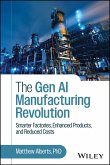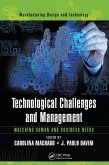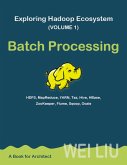Turn Manufacturing Data into a Scalable Competitive Advantage
Factories create massive amounts of data from IoT sensors, MES, SCADA, quality systems, supply chain, maintenance, and others. Yet most organizations can't turn it into decisions fast enough. The result is reactive firefighting and AI pilots that stall.
The Unified Manufacturing Data Architecture (UMDA) is a practical framework built for industry, not adapted from IT. It shows you how to handle real-time streams, integrate legacy systems, enforce security, and scale AI across sites.
What you'll learn
Potential outcomes when UMDA is implemented well
Who it's for: Plant leaders, manufacturing engineers, OT/IT architects, data/AI teams, and executives driving Industry 4.0.
Stop drowning in data. Build an AI-ready architecture that anticipates, adapts, and continuously improves by turning information into measurable results.
Factories create massive amounts of data from IoT sensors, MES, SCADA, quality systems, supply chain, maintenance, and others. Yet most organizations can't turn it into decisions fast enough. The result is reactive firefighting and AI pilots that stall.
The Unified Manufacturing Data Architecture (UMDA) is a practical framework built for industry, not adapted from IT. It shows you how to handle real-time streams, integrate legacy systems, enforce security, and scale AI across sites.
What you'll learn
- Design Common Data Models (CDMs) that unify complex, multi-system data
- Use edge federation for low-latency, on-site decisions
- Build a Unified Data Layer (UDL) that powers analytics and LLMs
- Apply data contracts for quality, security, and compliance
- Deploy Edge Intelligence Hubs and agentic AI/LLM routing
- Connect digital threads/twins to real-time operations
Potential outcomes when UMDA is implemented well
- Identify failure patterns earlier and plan maintenance proactively
- Catch quality drift in real time and reduce scrap/rework
- Synchronize planning with live constraints for fewer schedule breaks
- Shorten time-to-value by standardizing data and integrations
- Share proven improvements across sites with less friction
Who it's for: Plant leaders, manufacturing engineers, OT/IT architects, data/AI teams, and executives driving Industry 4.0.
Stop drowning in data. Build an AI-ready architecture that anticipates, adapts, and continuously improves by turning information into measurable results.
Dieser Download kann aus rechtlichen Gründen nur mit Rechnungsadresse in A, D ausgeliefert werden.









